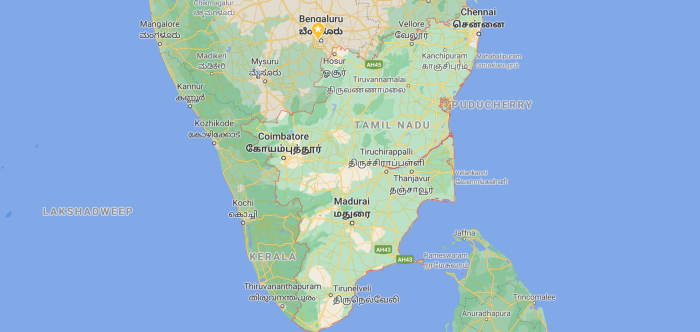Tamil Nadu Blockchain Policy 2020

Introduction
Blockchain Technology will play a huge role in e-Governance in the near future. It is expected to enable governments to build secure, auditable and efficient government workflows and processes. These modernized workflows can equip the government to design citizen centric applications that cater to different verticals of governance including agriculture, healthcare, data security and integrity, identity management and benefits and subsidy distribution. Blockchain will benefit the residents of Tamil Nadu by delivering better and more secure governance and efficient service delivery.
It is essential to provide a suitable environment for developing and maturing the Blockchain ecosystem within the State. To this regard, the policy suggests spreading awareness about the technology. The Policy also encouraging Research and Development in Blockchain technology by enabling academic and research institutions, start-ups and enterprises working on Blockchain technology through Blockchain forums and conferences.
Blockchain in e-Governance

As a network technology that promises interoperability, transparency and immutability Blockchain has numerous end-benefits for governments. It can be harnessed for providing accountable and efficient governance to our citizens. Following areas can use blockchain for e-governance.
Government processes require multiple departments to work together to provide a service to the citizen. Seamless data exchange between departments is critical to service to the citizen. Seamless data exchange between departments is critical to service to the citizen. Seamless data exchange between departments is critical to provide efficient service delivery. Smart contract enabled workflows and shared ledgers can track inter-departmental processes, bring in accountability and enforce data security and ownership.
Blockchain can be used as a source of authentication and verification for all the information and data produced by government departments.
Blockchain can enable authorities to verify the authenticity of documents by comparing the physical document copy against a version stored in a Blockchain. Storing the digital copy of the document in a Blockchain instead of a centralized server makes it more secure and immune to tampering.
Blockchain can also be used to build better supply chains for government, exchanging encrypted inter-department communication, and maintaining health records for citizens
Goals & Objectives of the Policy

To make Tamil Nadu a global leader in Blockchain Technology.
Provide faster, efficient, secure and transparent delivery of services to the people of Tamil Nadu by building new e-Governance Blockchain applications and to augment existing Governance workflows and processes with Blockchain.
To generate awareness and understanding about Blockchain technology in executives and senior officers of Tamil Nadu Government to promote adoption of the technology.
Provide new opportunities to people of Tamil Nadu and organizations of Tamil Nadu and help create a thriving ecosystem including Blockchain entrepreneurs and community development.
To promote and encourage mass adoption and implementation of Blockchain Technology in the State of Tamil Nadu across Government and industries.
Primary objectives of this Policy
To create a set of standards and guidelines to be followed by all Tamil Nadu Government Blockchain implementations to ensure enhanced interoperability, security, privacy and uniformity in technology stack across government departments.
To build a mature and self-sustaining Blockchain community to aid the growth of Blockchain technology in the state of Tamil Nadu.
To build a regulatory sandbox that can be used for building and deploying Blockchain applications.
Creating an oversight mechanism for ensuring successful rollout, adoption and implementation of the Blockchain policy of Tamil Nadu.
Implementation Strategy

Following is the high-level strategy the policy will employ to achieve the end goals and objectives
Envisioning a high-level design for building a common Blockchain Network for e-Governance Blockchain projects in Tamil Nadu.
Use case selection and prioritization for Blockchain in e-Governance.
Establishing standards and guidelines for designing, developing, and deploying Blockchain applications for e-Governance and for applications using the Tamil Nadu State Blockchain Backbone and implementing them.
Laying out a plan for Blockchain capacity building within Tamil Nadu for Government Executives and Officers.
Encouraging industry wide adoption by encouraging cross-industry and cross-academia collaborations through a Forum for Blockchain Ecosystem Development.
Building a regulatory sandbox for blockchain applications.
Designing an oversight mechanism for implementing the Blockchain Policy.
The policy recommends building a Blockchain Backbone infrastructure (network) for the state of Tamil Nadu. This infrastructure would function as a single source of truth and trust anchor for all government processes and data. This Blockchain Backbone would be used by the State of Tamil Nadu for reimagining governance and for encouraging adoption of Blockchain within the State. Following are some of the design recommendation for this network.
This infrastructure would be a hybrid blockchain platform hosted in state data centres, or on cloud or on-premise and would include participation from multiple stakeholders. It would be leveraged for building better G2G (Government to Government) and G2C (Government to Citizen) workflows and applications that will improve the lives of the residents of Tamil Nadu.
The Blockchain stack would have a modular architecture with modular components that can be used to build applications and workflows, significantly reducing the go-to-market time and cost for application development.
The platform would be capable of creating and deploying blockchain applications for all government departments and public sector enterprises of Tamil Nadu.
The seed nodes of the network (Initial nodes) shall be created and hosted by TNeGA. As new applications are deployed to production, the respective user department shall set up nodes on the peer to peer network to access their applications and secure the network from unauthorized modifications.
The infrastructure would work in a BaaS (Blockchain-as-a-Service) mode. The government would support stakeholders who choose to forgo hosting a Blockchain Backbone node. These stakeholders can use the Application Programming Interface (API) to connect to the Blockchain Network and build applications. This will help reduce their overhead and enable numerous players to quickly get onboarded on the platform and start using it. The government may charge users for accessing and submitting transactions to the network.
To ensure sanctity and accuracy of data captured on the Blockchain, data added to the infrastructure needs to be cleaned, de-duplicated and processed before submitting it to the Blockchain.
The platform would have a modular, evolving, and open architecture which would provide access to other third parties and interoperate with other Blockchain networks if required. Over a period, this platform would evolve as a trust anchor for all Government departments interacting with the citizens.
Use Case Selection and Prioritization
For Blockchain Technology to be successfully adopted in Tamil Nadu, Government of Tamil Nadu would select and prioritize the use cases for Blockchain implementation. The Government would prioritize the areas of Governance where Blockchain will have a significant positive impact. Initially, the following areas would be taken up for blockchain Implementation.
Data integrity and audit trails for government data and documents including inter and intra-organizational data and files and certificates, receipts, licenses, identification documents, blueprints etc. generated from the e-Sevai platform and other TN government portals.
Securing academic records, certificates, degrees and diplomas and providing a secure and trusted workflow for verification of these records by authorities and other stakeholders.
Creating a portable digital identity and implementing privacy protection for residents of Tamil Nadu.
Securing TN government websites and portals from cybersecurity threats and unauthorized modifications using Blockchain technology.
Securing land registration transactions and enabling cross-departmental workflows for land mutation.
Tracking agriculture produce and increasing profitability for farmers.
Creating a secure healthcare platform that caters to all the residents of Tamil Nadu.
Blockchain enabled platforms for seamless distribution of benefits to residents of Tamil Nadu.
Conclusion

This Policy provides a high-level plan for introducing and adopting Blockchain technology within the state of Tamil Nadu. The Government looks forward to implementing this technology within the e-Governance system and enable other Government departments and agencies to leverage it to build apps and solutions. The policy aims to strengthen Tamil Nadu’s prowess in Blockchain technology and make it a leader globally and deliver citizen centric services that are faster, efficient and secure.
Read More Blogs
Blockchain based Herd Management Software for dairy farms and milk cooperatives
The cattle and herd management...
Learn MoreThe Blockchain Necessity Framework
Blockchain has been positioned as a revolutionary new technology...
Learn More
